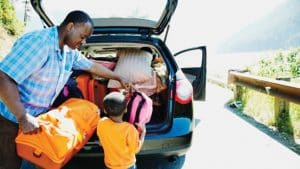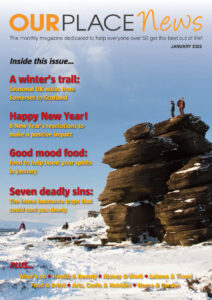We have reached the stage where a seaside break, once the beloved if kitsch balm for working Brits’ souls, has become a rarefied luxury that’s too expensive for millions of people.

Did you have a good Easter? Go anywhere nice? Let’s face it, just leaving the house feels daringly decadent. Meanwhile, travel abroad for all but “essential” reasons will result in a £5,000 fine until at least 17 May. Travellers already in 33 countries returning to the UK will have to book a 10-night stay in a quarantine hotel at a cost of £1,750. That’s a lot of money to fiddle about with a tiny kettle.
Then again, holidaying in the UK might not be cheap either. Prices on Airbnb accommodation in ‘desirable’ coastal destinations for July and August have risen 35 per cent, according to Which?. One Airbnb property owner in Brighton increased their price per night by 140 per cent.
We have reached the stage where a seaside break, once the beloved if kitsch balm for working Brits’ souls, has become a rarefied luxury that’s too expensive for millions of people. The Costa del Sol has long been cheaper than the Costa del Berwick: both may now be off the table for anyone without a supersized holiday fund and/or ninja booking skills.
Rory Boland, travel editor at Which?, tweeted a few weeks back that it was possible to find a seven night budget holiday package in Corfu in mid-July for £370, covering two people with flights. “You’ll pay close to double that in Cornwall”. He acknowledges this isn’t just about “rip-off prices”, with the cost of doing business in the UK far greater.
Still, those of us who can’t afford a ritzy B’n’B in St Ives may have to drastically alter our expectations. Rory says: “If you look beyond the coast, head inland and swap a building for a caravan or tent you bring costs closer to £370 in the UK, but you are then talking about a very different type of holiday.”
Quite. Camping equipment in my cupboard gathers dust because I’m scarred for life by Glastonbury 2008 when our tent flooded in the night and I almost got trench foot. But even if you manage to organise a more serene (and affordable) staycation, you will have to
figure out what your rights are if the worst happens and whether you can cover your back.
Firstly, don’t assume your existing travel insurance covers British holidays: many standard policies don’t. Secondly, you might not be covered if you’re staying in a privately rented cottage as opposed to official “commercial premises” like hotels and B’n’Bs.
Furthermore, just 1 per cent of policies will cough up if your trip is cancelled due to another lockdown. This seems unlikely but the past 12 months has taught us to rule absolutely nothing out. Yes, travel firms should be refunding you automatically in this event. Thousands of customers, still waiting to get their money back after last year’s cancellations, will testify that ‘should’ doesn’t mean ‘will’.
Some 29 per cent of policies won’t pay out if you catch Covid-19 before your trip and can’t travel. You can opt for fully flexible booking with hotels, but they’ll usually cost more. Some Airbnb hosts offer refunds, many don’t. Covid-19 is turning all of us into self-taught professors of small print, and that’s no bad thing. I only wish so many of us weren’t having to learn the hard way.
If it’s any consolation, I think UK travel can be enormous fun and great value, so long as you plan it smartly and stay philosophical about the weather (it does help that I was brought up in Scotland). For instance, you can stay in budget accommodation further away from hotspots if you have – or hire – a car.
It also pays to keep an open mind about potential destinations. Pre-Covid, my generation had maybe become too preoccupied with how photogenic our holidays looked on social media as opposed to whether we had a genuinely mind-broadening experience. Research from Schofields Insurance suggested 40 per cent of us would choose our holiday destination based on how ‘Instagrammable’ it was.
Such expectations were reinforced by travel bloggers and influencers jetting all over the world, their digital postcards highly filtered and often covertly paid-for. Our messed-up housing market (and one-note media coverage of it) also encouraged young people to think: “Sod it, I may as well see the world if the alternative is a giant mortgage on a shoebox.”
I love going abroad as much as anyone. Yet when I reflect on research from Gfk back in 2016 (tellingly sponsored by Airbnb) which found that millennials rated travel as a bigger financial priority over the coming five years than saving for a home or paying off debt, my heart sinks. I genuinely hope they enjoyed it while it lasted. But I pray they didn’t do so at the expense of building their financial resilience, having had their buttons pushed by online salespeople. In that case, Instagram memories provide scant consolation.
(Story source: Inews)

